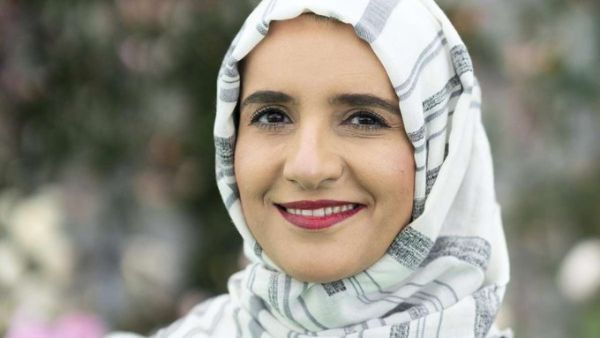In May last year “Celestial Bodies” became the first Arabic-language translation to win the Man Booker International Prize.
That might never have happened if its Omani author, Jokha Alharthi, had not gifted translator Marilyn Booth a copy of the Arabic original, and if Booth in turn had not done what she advises other translators against: translated the book without first having secured a publisher for the effort.
“I read it and I loved it, [so] I translated it,” she told The Daily Star at the Emirates Airline Festival of Literature this week in Dubai, where Booth, Alharthi and Lebanon’s own Hoda Barakat participated in “Going Global,” a panel discussion on Arabic literature in the world.
“Quite a few of the books I’ve translated, I’ve chosen them,” Booth said, “and I’ve chosen them because I’ve read them. I’ve come across them for some reason or another and I’ve loved them and I’ve thought this really must be translated and I want to do it.”
“Celestial Bodies” wasn’t Booth’s first heart-driven translation. She took the same approach to Barakat’s novel “Disciples of Passion,” as well as the work of Lebanese writer Hassan Daoud.
Barakat’s most recent novel, “The Night Mail,” won the International Prize for Arabic Fiction (aka the Arabic Booker) last year, and Booth is now working on its English translation. She is also translating “Narinjah,” another book by Alharthi. Both translations are backed by established publishing houses.
During the panel discussion on Feb. 5, the conversation centered for a time on why translation is so important to Arabic-language writers and why so many Arabic-language books remained untranslated, despite what Booth described as an “exuberance of works” in the language and an apparent “very lively readership in Arabic.”
The panel’s moderator, Bilal Orfali “pleads guilty” to having overlooked Alharthi’s novel until it appeared in English. Only after the critical success of the translated work did he seek out the original.
Barakat meanwhile leveled that for a lot of Arabic-language writers being translated into English is equated with success. “Arabic writers think if they don’t translate their work they will miss something very important,” she said, adding that the promise of translation is often the key to an author accepting a publisher’s conditions.
Yet, the quantity of literature translated from Arabic remains relatively small.
Booth stressed that many of the barriers to translation from Arabic are institutional. She pointed out that sometimes she reads novels published in Arabic which show immense potential, but which have left her thinking, “It needs a good editor.”
She also noted that within the Arabic publishing world “the circulation of texts is not always what we would wish.”
While acknowledging the tough environment in which publishers operate, Booth is perhaps most passionate on the topic of what English-language publishing houses are presently overlooking in the Arabic literary scene.
“One of the things I feel strongly about,” she said, “and I tell publishers this, is that there are so many amazing works from the ’60s, ’70s, ’80s, ’90s that need to be translated and unfortunately ... there often seems to be a desire for the latest thing, and I just think we should try to look at what has existed for a while and needs to be translated.”
This article has been adapted from its original source.








